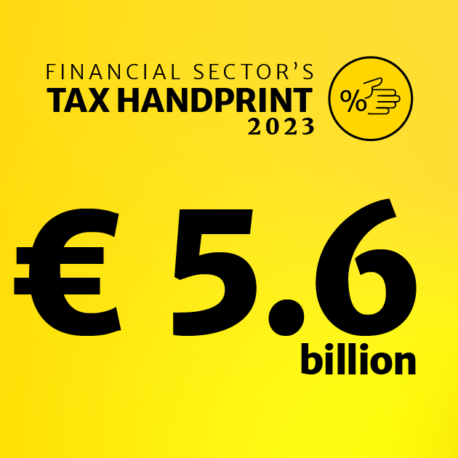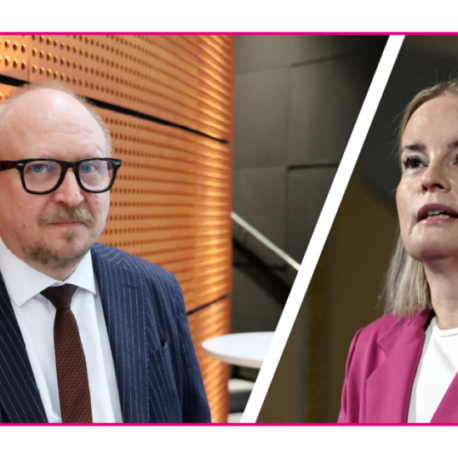
- The aim of the FASTER Directive is to standardise and expedite the refund process for withholding taxes within the EU and to prevent abuses related to withholding tax refunds. The directive seeks to facilitate cross-border investment activities in the EU.
- More efficient levying of withholding taxes would ease the work of investors, national tax administrations and certified financial intermediaries, such as custodian banks and investment firms.
- The FASTER Directive is genuinely necessary, but there is a risk that the harmonisation of withholding tax procedures will be left incomplete, resulting in an unnecessarily complex and administratively burdensome system.
The Faster and Safer Tax Relief of Excess Withholding Taxes (FASTER) Directive is a piece in the EU Capital Markets Union (CMU) action plan and is aimed at attracting investment into the EU. The CMU action plan includes several legislative projects which are aimed at harmonising capital markets regulation, attracting private investment from outside the EU and enhancing the use of the EU’s investment potential.
The FASTER Directive seeks to enhance EU withholding tax procedures and simplify practices for cross-border investors, national tax administrations and custodians, such as banks and investment firms. The directive applies to dividends paid out on publicly traded shares and to interest paid out on bond holdings.
The EU member states reached an agreement on the directive in May 2024. Finance Finland and its sister organisations in Sweden and Denmark appeal to both the Commission and the Ministries of Finance in Denmark, Finland and Sweden for the careful completion of the directive. The Nordic financial sector presents its own recommendations for improvements that would ensure that the final FASTER directive is well-implemented.
“The Nordic financial sector is especially concerned about the complexity of the directive and the risk of Union-level harmonisation falling short. We fear the directive could needlessly increase the administrative burden of custodians and tax authorities and result in more cumbersome processes, counter to its own aims”, says Marja Blomqvist, head of tax regulation at Finance Finland.
Harmonisation objectives must be taken seriously
The Nordic financial sector emphasises that for the directive to work to its full potential, it is essential that its withholding tax procedures are harmonised. Harmonisation is an important and eagerly anticipated measure which, when well-implemented, will streamline withholding tax processes for investors, tax administrations and sector participants. However, the agreement member states reached in May contains potential pitfalls.
“The negotiation result allows member states to make extensive exceptions from the existing standard with reduced tax-at-source and quick refund processes. This conflicts with the harmonisation objectives”, Blomqvist explains.
From the viewpoint of financial sector participants, the reporting obligations related to the directive are also in need of particular attention and require harmonisation.
“The FASTER directive’s reporting obligations are considered burdensome. From the sector’s viewpoint, it would be important to have fully harmonised reporting standards without country-specific variations”, says Blomqvist.
The directive also includes provisions on due diligence processes. Due diligence refers to reasonably proportioned measures taken by a person or an organisation in order to meet statutory requirements, especially in the context of a sale or purchase transaction. The harmonisation of due diligence processes and the definition of the beneficial owner are vital to ensuring the appropriateness of the directive.
“Due diligence requirements should be based on a clear and standardised process. Certified financial intermediaries must have unambiguous clarity on the steps they must carry out to verify the information provided by the registered owners of securities”, says Blomqvist.
Blomqvist adds that the Commission should also clearly define the frequency of the obligatory controls and the information these controls are to be based on.
“Despite these concerns, the Nordic financial sector welcomes the FASTER Directive and thinks it holds significant potential to simplify and speed up withholding tax processes in the entire EU area”, Blomqvist concludes.
Looking for more?
Other articles on the topic

The financial sector is one of the biggest taxpayers in Finland – The sector’s €5.7 billion tax contribution would cover child benefits for nearly four years

Financial sector’s VAT treatment needs an overhaul, but the Finnish pension system must not be hampered with added tax burden

The Nordic financial sector calls for harmonised implementation of the FASTER Directive

Income taxes paid by financial sector companies grew to €1.3 billion in 2023, and the sector’s total tax handprint of €5.6 billion would cover Finland’s military expenditure – OP Financial Group and Nordea the two largest taxpayers in Finland



